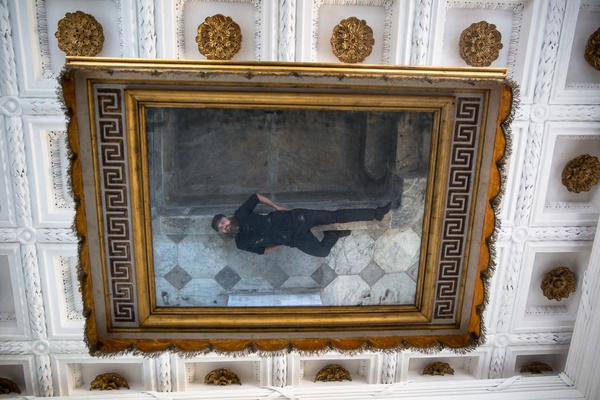Christian Winther Christensen
Christian Winther Christensen is an example of the wave of younger composers in Europe that have each found their own musical language. Together they form the frame for a completely new way of composing and being a composer that no longer leans up against the composers who are now in their late forties or fifties. “The new streams give a certain freshness. Of course I am influenced by the older generation since it is them I have immersed myself in. I know all of Lachenmann and Ligeti’s works but what I am really inspired by is now my own generation”, says Winther Christensen.
Composers are inspired back and forth by one another and ideas and quotations are exchanged between them. Also in many of Winther Christensen’s works there are examples of ideas that have been taken from other composers. Composers are active on the music scene, attend many concerts and in this way are affected by streams they each set in motion. A current tendency is that the young composers have a visible role in the performance of their works: as musicians, the one controlling the electronics, in the form of a projection of themselves on the stage or something similar. Winther Christensen is concerned with investigating this, and it comes to light in many of his works – in particular when working on projects in collaboration with the artists collective DYGONG.
In Denmark there is a tendency to associate Winther Christensen with DYGONG and their approach since many of his works that are performed on Danish soil are strongly conceptual in nature and contain absurd elements. He is an enfant terrible and one can be sure of only one thing: that he will continue to turn things on their heads. Should one look just a little over the Danish borders, one notices however a view of Winther Christensen as a much respected serious composer. The greater part of his ensemble pieces have been played by skilled foreign ensembles that specialise in new music. Even though he plays with absurd and ironic elements in his orchestral and ensemble works in order to give the music a certain edge and charm, these elements never detract from the work being taken seriously.
In Winther Christensen’s works there are often quotations from older classical music. Beethoven, amongst others, is a composer who often, in various disguises, appears in Winther Christensen’s music: “Beethoven stands for the whole idea of being a composer – especially when taken from the point of view one had in romantic period. If one says the word ‘composer’, it is Beethoven one thinks of. There is something beautiful in him being placed on such a pedestal. I believe it is one of the reasons I’m so taken with him.”
Even as a cutting-edge modern composer one cannot deny that the profession is part of a long tradition. The setting around the premiere or performance of a work is one thing, but also latent in the work lie many references to the entire Western conception of music and about this Christian Winther says the following: “In the old classical instruments so much musical spirit is still to be found and the way in which the instruments are built contains tonality in various ways: a large number of random flageolets on the strings creates something A or D Major like. The main keys on a clarinet or flute are after all a diatonic scale, etc. To play with this in my works, and in this way also refer to Western music history, seems to me the evident thing to do.” As much as Christian Winther Christensen is inspired by his own generation of composers, he too in turn influences the tendencies of his time through his works. He has his own unmistakable style and manifests himself as a completely contemporary composer pushing the boundaries, while at the same time relating to music history through quotations and intimations that comment on, create ironic distance, turn on it’s head and give new music a completely new dimension.
http://www.christianwintherchristensen.dk/